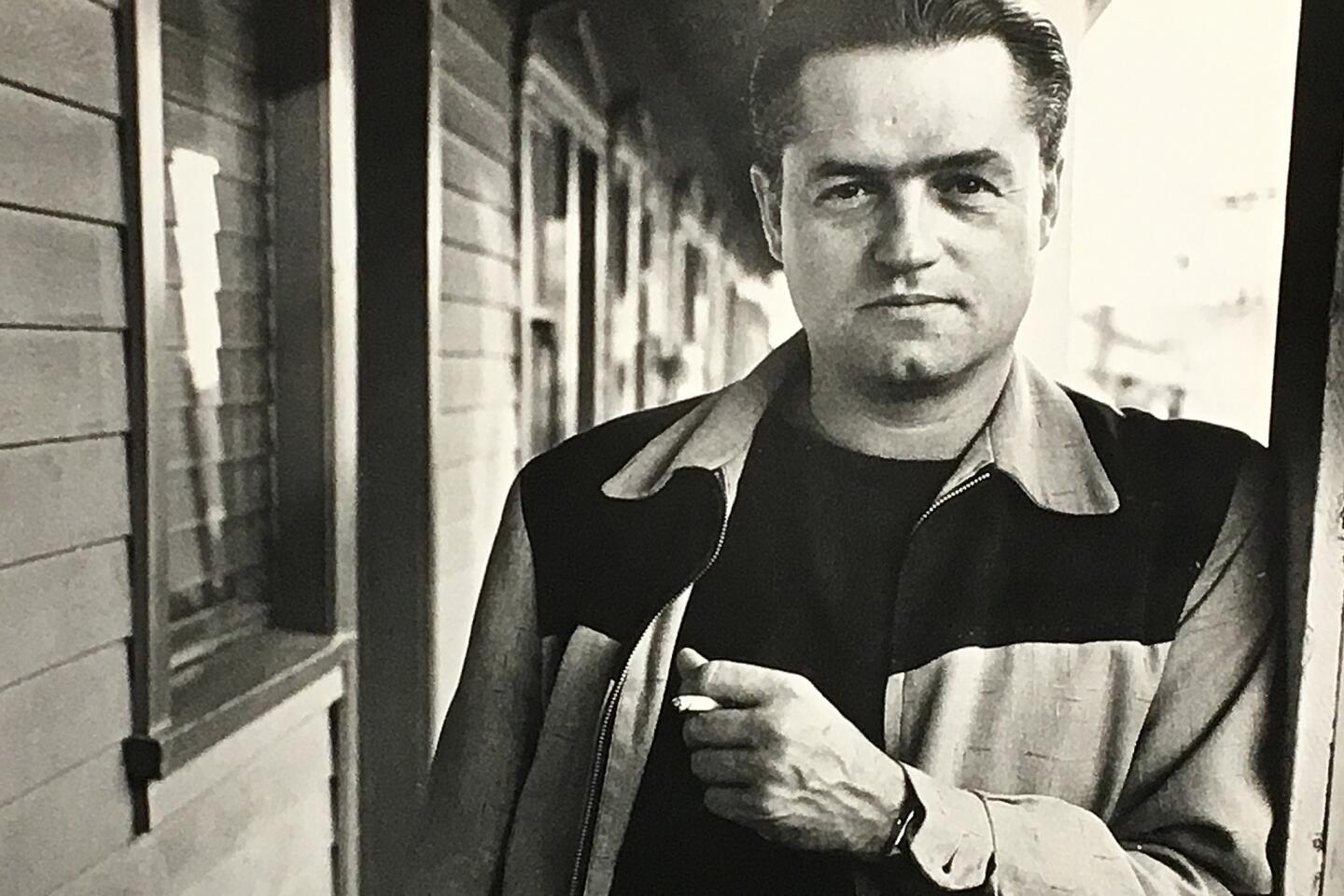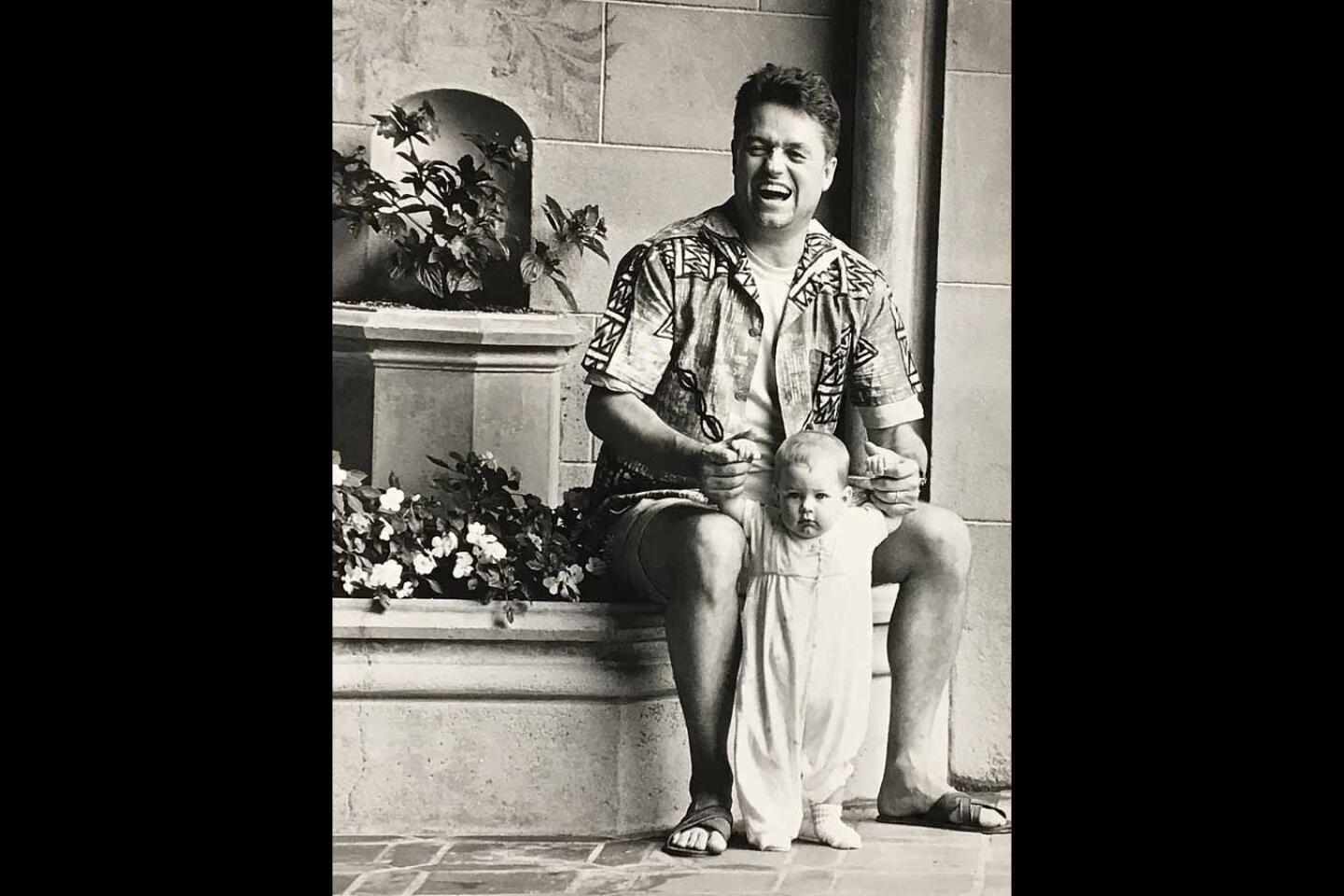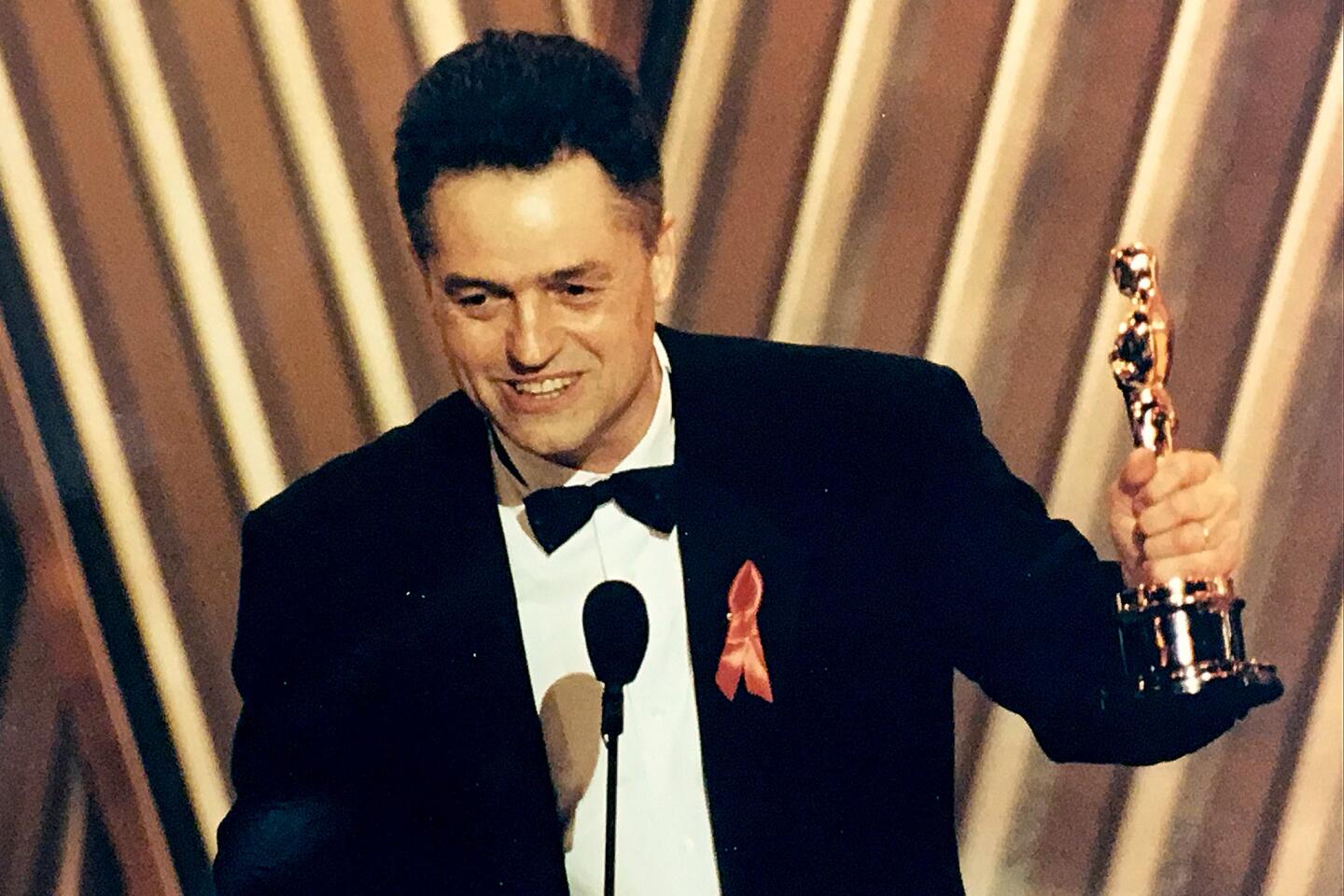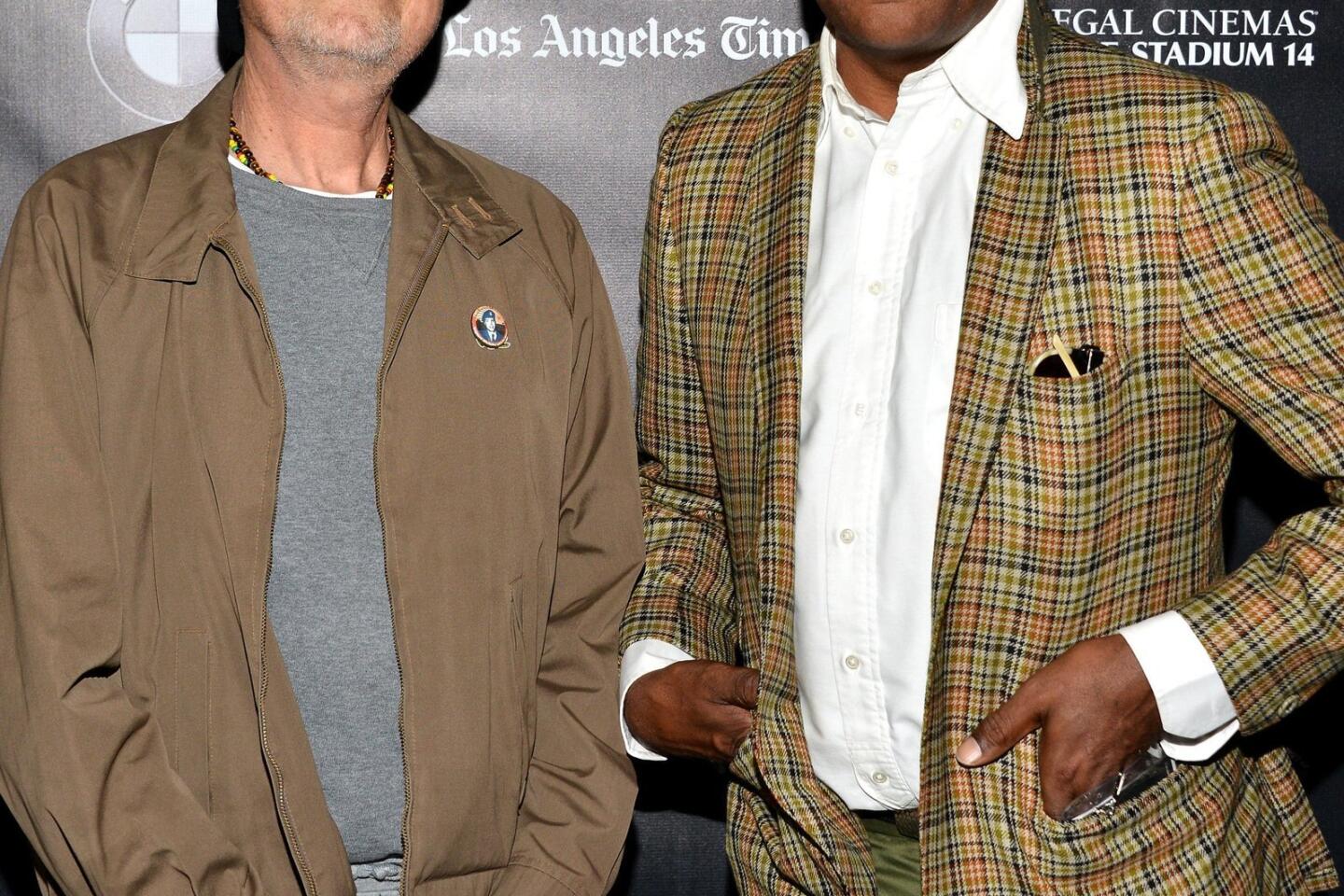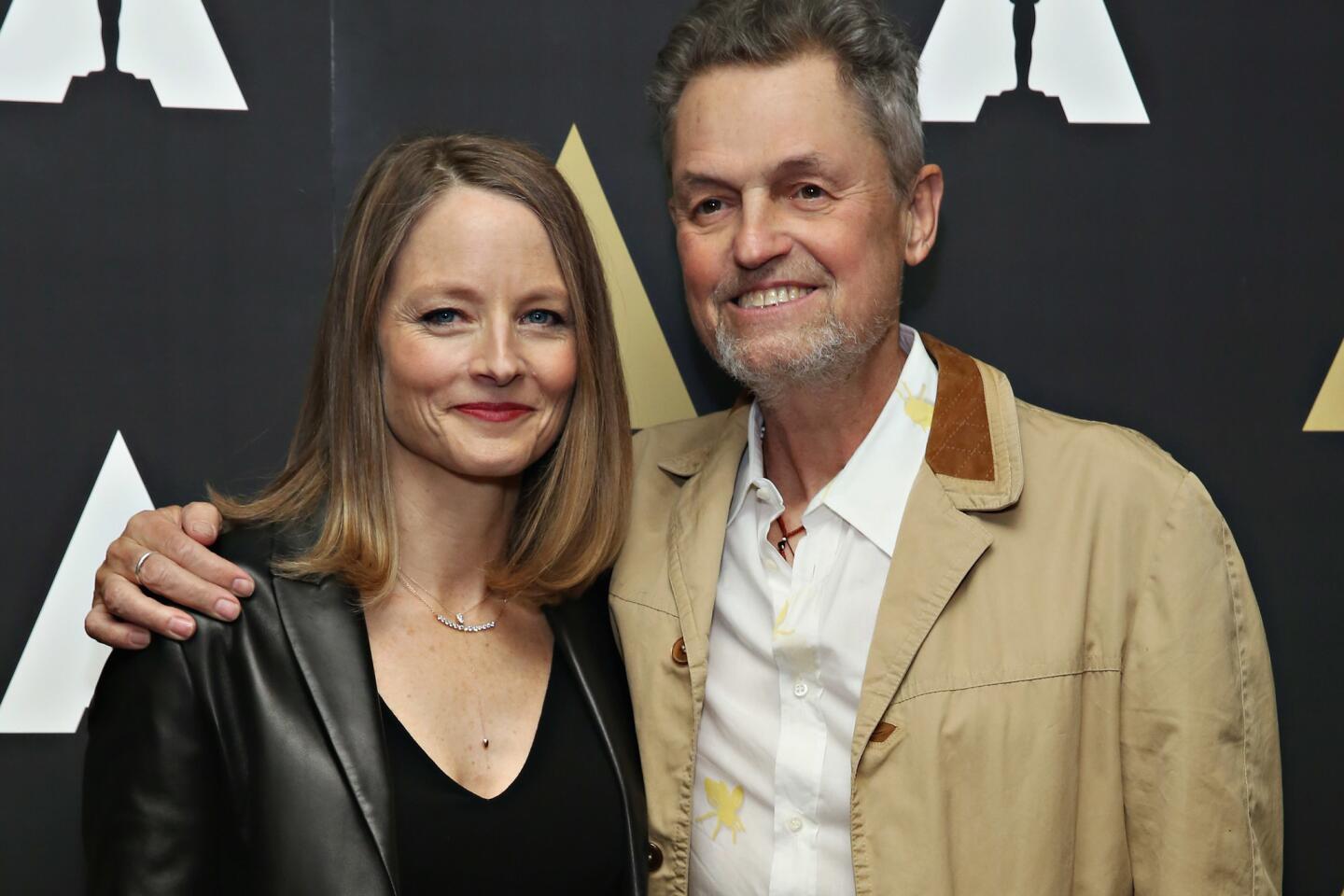Jonathan Demme, Oscar-winning director of ‘The Silence of the Lambs,’ dies at 73
Presented with Thomas Harris’ bestselling novel “The Silence of the Lambs,” most Hollywood directors would have been primarily enticed by the lurid appeal of its serial killers, Hannibal “The Cannibal” Lecter and “Buffalo Bill.” But for Jonathan Demme, who directed the hit 1991 film adaptation, it was the quietly flinty heroine, FBI agent Clarice Starling, who most drew him to the tale.
“I’m pulling for women,” Demme told The Times in 1991 in the run-up to the film’s release. “I’ve got enough estrogen in me to identify with women. I don’t have any difficulty with that.”
Then again, Demme, who died Wednesday at age 73, never came at anything from the obvious or predictable angle.
Throughout his career, the Oscar-winning director displayed a wide-ranging and big-hearted curiosity about all facets of the human condition that animated such diverse films as “Melvin and Howard,” “Something Wild,” “Stop Making Sense” and “Philadelphia.”
Demme died of complications from esophageal cancer in his Manhattan apartment surrounded by his wife, Joanne Howard, and three children, representatives for his family said.
The breadth of Demme’s vision was readily apparent in the range of subject matters and genres he tackled throughout his nearly 50-year film career. Few filmmakers in Hollywood were as difficult to pin down or pigeonhole.
Equally facile with comedies, dramas, thrillers and documentaries, Demme earned a reputation early on as an actor’s director and had success both with broadly appealing studio films and smaller, quirkier indie fare. He could find as much to fascinate him in a flesh-eating murderer like Lecter as in a concert by rock band Talking Heads, a Mafia wife or a gas station owner who claimed to have been a beneficiary of Howard Hughes.
As Demme rose to prominence in the 1980s, a number of younger directors, including Wes Anderson, Alexander Payne and Paul Thomas Anderson, drew inspiration from his keen eye for the vagaries of human behavior — what critic Pauline Kael, in a review in the New Yorker of 1980’s “Melvin and Howard,” called his “sympathetic imagination.”
Demme earned the directing Oscar for the horror-thriller “The Silence of the Lambs,” his most commercially successful — and in some ways his most anomalous — film. Centering on an icy sociopathic killer played by Anthony Hopkins and a young female FBI agent played by Jodie Foster, the film grossed $272 million worldwide and earned five Academy Awards. To this day, it is the only movie in the horror genre to have won the Oscar for best picture.
Demme leveraged that success to make the 1993 drama “Philadelphia,” one of the first mainstream studio films to take on the AIDS epidemic, homosexuality and homophobia. Tom Hanks earned the lead actor Oscar for his performance in the film as a gay lawyer who sues his firm for wrongful dismissal after he is diagnosed with AIDS.
Born Feb. 22, 1944, in a suburb of New York, Demme got his first foothold in Hollywood as a film publicist before going on to apprentice for producer Roger Corman, whose low-budget B-movie empire would prove a fertile breeding ground for a number of directors of Demme’s generation, including Martin Scorsese, Francis Ford Coppola and Ron Howard.
After co-writing and producing the exploitation films “Angels Hard as They Come” and “The Hot Box,” Demme made his directorial debut with the 1974 women-in-prison picture “Caged Heat.” He would soon graduate to more elevated fare, earning critical raves for the dramedy “Melvin and Howard,” which was inspired by the real-life story of a Utah gas station owner who was listed as a beneficiary in a will allegedly written by billionaire Howard Hughes.
But Demme’s affinity for stories centered on strong, complicated women would remain a constant in his career — a fascination that he traced back to his own mother, Dorothy Louise Rogers, whom he placed in bit parts in some of his films.
“I’ve always been a sucker for a story where someone sets a reasonably heroic task for themselves and eventually achieves their goal,” he told the Los Angeles Times in 1988.
“I admire it whether it’s a man or woman who does it, though I guess it’s more appealing when a woman does it because it’s so much tougher for women to achieve things in a male world. Maybe some of that attitude comes from the fact that I’ve always been so proud of my mother. She was an alcoholic who quit drinking when I was very young. And she went on to really help people through Alcoholics Anonymous.”
Indeed, throughout his career, Demme often was drawn to stories of women battling steep odds and internal demons, whether it was Foster’s FBI agent in “The Silence of the Lambs,” Anne Hathaway’s troubled young alcoholic in 2008’s “Rachel Getting Married” or Meryl Streep’s aging rock star in the 2015 dramedy “Ricki and the Flash,” which would be Demme’s last major studio film.
Even as he ranged across a startling variety of genres, Demme would return again and again to certain key interests, including music, politics and oddball Americana.
Demme considered music his first love. His first film credit was as music coordinator on a 1970 thriller called “Sudden Terror,” and throughout his career, he would take obvious delight over selecting just the right song to capture the mood of a scene — from Sister Carol’s reggae-inflected take on the Troggs’ “Wild Thing” in the 1986 dark comedy “Something Wild” to the mournful ballad “Streets of Philadelphia,” which Demme asked Bruce Springsteen to write for “Philadelphia” and would go on to earn the Oscar for original song.
Over the years, Demme directed a number of music videos and documentaries on such varied artists as Neil Young, Kenny Chesney and Justin Timberlake. But his passion for fusing sound and image may have found its purest expression in the 1984 Talking Heads concert film “Stop Making Sense.” Among the most acclaimed concert movies ever made, the film devoted unblinking focus on the band’s mesmerizing performance, to the extent that Demme refrained from showing the audience until the final moments.
Demme was among the most politically engaged of major Hollywood directors, unafraid to publicly align himself with causes from which others may have shied away. In 1981, he shot a series of ads for the liberal advocacy group People for the American Way, and in 1985, he directed a music video for Artists United Against Apartheid, which called for a boycott of the South African luxury resort Sun City.
In later years, Demme lent his support to democracy for Haiti, and in 2007, he directed the documentary “Man From Plains,” chronicling former President Carter’s book tour across America to publicize his book “Palestine: Peace Not Apartheid.”
Never one to rest in one spot for long, as the major studios shifted away from the kinds of offbeat, character-focused stories he most loved to tell, Demme increasingly turned his attention elsewhere, whether it was smaller-scale independent films, documentaries or television productions. His final work, an episode of the Fox drama series “Shots Fired” that he directed, is set to air Wednesday night.
Demme, whose first marriage to Evelyn Purcell ended in divorce, is survived by his wife and three children, Brooklyn, Ramona and Jos.
While his fondness for eccentric characters and off-the-beaten-path stories may have kept him from the topmost ranks of Hollywood’s blockbuster-minded totem pole, Demme never wavered in his belief that his job as a filmmaker was ultimately both to enlighten and to entertain.
“It’s a tremendously important part of the director’s job to try to fashion the script at hand to the broadest dynamic possible,” he told The Times in 1988. “I’m still interested in movies that say something about the human condition in these troubled times in a way that really touches people when they see it, but also in a fashion that can be called entertaining.”
ALSO
Robert Pirsig dies at 88; wrote counterculture classic ‘Zen and the Art of Motorcycle Maintenance’
UPDATES:
2:40 p.m.: This article was updated with additional details of Demme’s career and influence.
11:55 a.m.: This article was updated with details of Demme’s political activism and later projects.
11:15 a.m.: This article was updated with additional details of Demme’s career.
This article was originally published at 8:50 a.m.
More to Read
Start your day right
Sign up for Essential California for the L.A. Times biggest news, features and recommendations in your inbox six days a week.
You may occasionally receive promotional content from the Los Angeles Times.

